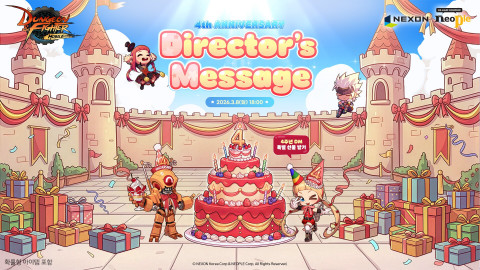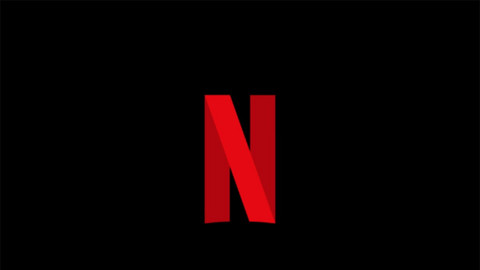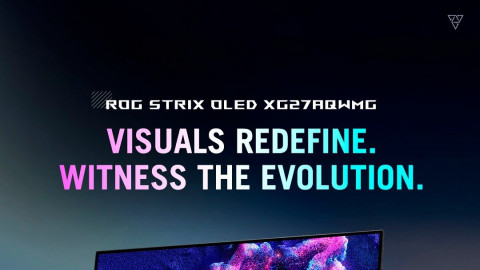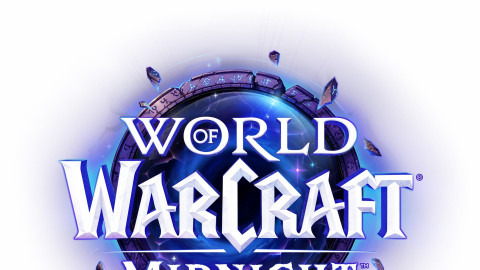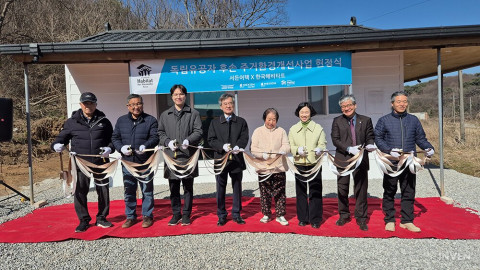
AAA game developer Activision Blizzard has been under fire over the past year after the California Department of Fair Employment and Housing (DFEH) started putting legal pressure on the developer for systemic gender discrimination. Exposed for a “frat boy” culture — including allegations ranging from sexual harassment to breast milk being stolen — Activision Blizzard has become the most hated company in gaming, with hopes that recent purchase by Microsoft would turn things around for the fallen-from-grace studio.
READ MORE
Full timeline of the Activision Blizzard gender discrimination lawsuit
As the lawsuit made headlines, the employees of Activision Blizzard sought to take matters into their own hands. Employees formed the ABK Workers Alliance (ABK short for Activision Blizzard King) and started the recent Quality Assurance (QA) workers unionization effort at ABK studio Raven Software, the studio tasked with developing Call of Duty: Warzone and Black Ops Cold War, called the Game Workers Alliance.
For months now, the end game for these workers has been loud and clear: to not be mistreated, ignored, abused, and discriminated against by the eight-figure suits and the petty and incompetent management.
One of the leaders of this march for unionization is Jessica Gonzalez. A seven-year QA veteran, Gonzalez has held multiple stints with Activision and Blizzard studios including the “inhumane” “machine meat grinder” that was COD: Black Ops 3’s development at Treyarch.
Amid the fallout from DFEH’s lawsuit, Gonzalez became one of the founders of the ABK Workers Alliance and a key figure in the ongoing fight for the Game Workers Alliance QA unionization effort at Raven Software. Until December 2021, she was also an Activision Blizzard employee before being ousted for, as she put it, “harassment, discrimination, and immense pushback” to her efforts.
Gonzalez might be a former ABK employee but she hasn’t given up the fight, nor her perseverance to share stories from within the Activision Blizzard kitchen. To Inven Global, Gonzalez shared stories of recurring abuse towards women and other contractors, as well as the powerful resistance against leadership that refused to be held accountable for anything.
“We will not be silenced”: ABK Employees start a movement
Employees at ABK first began organizing in the summer of 2021 under the name ABK Workers Alliance. The triggering effect was Chief Compliance Officer Frances Townsend’s email, denying all allegations of misconduct from the company, saying that DFEH’s lawsuit was “truly merciless and irresponsible” and “presented a distorted and untrue picture of [ABK]” and claiming that the information is “factually incorrect” and “out of context.”
In support of his anti-worker mouthpiece, Bobby Kotick released a similarly “tone-deaf” statement, denying the allegations and announcing ABK had hired Wilmer Hale, an infamous law firm known for “union-busting”, to handle the internal investigation. It was also revealed later that it was in fact Kotick that had written Townsend’s email, adding yet another layer of absurdity to the situation.
The mulishness and impudence from ABK senior management naturally did not sit well with the studio’s employees, who knew very well what was going on behind closed doors. They were there, after all. According to Gonzalez, this was nothing more than “corporate gaslighting”.
“It’s a culture of drinking, it's a culture of nepotism, everyone wants to promote their buddies, so you feel like you are going in and the odds are stacked against you,” she alleged. “I have been to Activision Christmas parties, there is a heavy drinking culture, a heavy bro culture, I got groped at a party, it is very much a prevalent issue in the industry, and they want to act hush-hush like it doesn’t happen.”
Climbing the corporate ladder was a hellish experience of itself, Gonzalez explained further. Managers were forced to pick the best and worst people on their teams, creating a culture where their friends and drinking buddies were promoted, while the people not in their favor — in many cases women — were left behind, given no chance for promotion.
Contractors had it even worse and were “treated like second-class citizens”. They’d often be lured with hollow promises of full-time employment, only to often be let go at the end of their contracts, proliferating, as Gonzalez referred to it, “the perfect formula for abuse”.
“[The DFEH] were talking to women currently at the company, women who had recently left the company, friends of mine who felt failed by leadership and left,” Gonzalez explained. “So when the lawsuit went public we all knew that this is how it was to work in the industry, and we were finally like, ‘oh, we are being represented for once’ and then leadership responded by sending out an email under the guise of Francis Townsend who had just joined the company three months prior and her email said ‘screw the State of California’ essentially.”
If Townsend’s (or rather Kotick’s) plan was to throw a blanket over the fire and quelch it, it didn’t work. ABK employees flooded Townsend’s inbox, calling her out for disregarding the plight of women at the studio. At the time also the head of the ABK Employees Women’s Network at ABK, Townsend agreed to an internal Women’s Network Zoom meeting. 500 women attended the meeting — the maximum Zoom would allow — to share their experiences and condemn Townsend for her lack of empathy.
But although everyone in the meeting gave consent to it being recorded, it never saw the light of day outside that Zoom call. It wasn’t shared with anyone, Gonzalez said, not with those who attended it, and not with those who might want to see it.
“We pinged them every day to get a copy of the recording, and then our communications lead in Slack finally said, ‘Due to the nature of the things discussed, we are not allowed to share it at this time.’”
At that point, Gonzalez and her compatriots felt they had no other course of action but to take their protests to the streets.
“So then we organized the walkout, just because of Francis's email and Bobby’s response, calling it tone-deaf, we wanted to hold leadership accountable,” Gonzalez told Inven Global. “We run Blizzcon so we were pretty organized, and we were like yeah we are gonna meet in front of the gates and we are going to submit an open letter to leadership and state demands”
The open letter signed by former and current ABK employees condemned ABK’s statements, calling them “abhorrent and insulting”, called for Townsend’s resignation, and demanded leadership to officially recognize the “seriousness of these allegations.”
The same day ABK hosted a partial staff meeting, in which Blizzard Exec Joshua Taub allegedly suggested that the only way to handle these matters is through internal discussions with Wilmer Hale, rather than public-facing dissent — a tactic often exploited by corporations to keep scandals under wraps.
Taub’s maneuver didn’t work and the walkout took place the next day. The ABK Workers Alliance made multiple demands to the company, including ending the contractually forced arbitration, a practice Gonzalez condemns for being used to shield abusers from public shame.
“We were just tired of these whisper networks,” Gonzalez said. “It shouldn’t be on the women to warn other women at the company, it shouldn’t be on the survivors to have to warn others.”
The first walkout yielded no results so a second walkout happened in November. “We have instituted our own Zero Tolerance Policy,” the ABK Workers’ Alliance said. “We will not be silenced until Bobby Kotick has been replaced as CEO, and continue to hold our original demand for third-party review by an employee-chosen source.”

It is worth noting that recent federal legislation was signed into law banning forced arbitration in sexual assault and harassment cases, so ABK will likely no longer be able to cover up their alleged misdeeds using the arbitration contractural clause.
The walkouts were finally working, but they’d not be the end of ABK Workers Alliance efforts. They’d be just the start of a wider effort to unionize games workers.
Seeds of unionization
The walkouts in protest might not have been immediately effective in cleaning the rot at Activision Blizzard, but they gave something workers something else: courage and solidarity.
“People were scared at the first walkout,” Gonzalez explained. “We didn’t really know our rights, so [participants] didn’t want their pictures taken or to talk to the press, but as we began organizing and talking to CWA and legal counsel, we knew our rights and people were more open to taking photos and talking to press. It just went from there, we kept organizing, going to meetings every week, advocating for our coworkers, and getting the right messaging out there.”
At this point, the ABK Workers Alliance, which goes by @ABetterABK on Twitter, was starting to make inroads both internally in ABK and online with the broader games community.
“We wanted to speak for ourselves, and not be spoken for through Francis or Bobby and be gaslit,” Gonzalez said. “We wanted to speak for ourselves, not be spoken for. We wanted to lead by example and not let them lead horribly. [...] That is why A Better ABK was so important.”
While it was gender discrimination that lit the lawsuit fuse, worker mistreatment at Activision Blizzard doesn’t stop there, Gonzalez said. A giant of the industry, the studio too suffered from the all too familiar horror stories of barbarous crunch, poor working conditions, and systemic harassment.
“The way that crunch affects contractors, especially QA, is actually inhumane,” Gonzalez said. “I can't tell you. When I worked on Call of Duty Black Ops 3, I was night shift, we had day shift, we had people working 24-hours around the clock on that game. The working conditions there were so bad, it was awful, people suffer physically and mentally.”
While Activision Blizzard has claimed that its employees don’t need a union — evident from the lawyers they’ve hired — and that they are open to feedback from employees, Gonzalez pushed back heavily on this claim. Lack of unionization, she says, gives management free reign to do whatever they want, as long as they can balance between what’s ethical and what’s legal. The ABK Worker's Alliance applied pressure to management for the first time, and was already yielding results.
“Right now, you take a complaint to leadership at ABK and they say, ‘Thanks, we hear you’ and then don’t do shit about it. They do the legal minimum required versus the ethical maximum. They are like, ‘Oh, we don’t have to listen to you legally’ and that is why they are so scared of unionization, they know that they will be held accountable by employees. [...] They don’t want to listen.”
You can’t unionize if you don’t exist
As the fight for unionization gained legs, Activision Blizzard did their best to stop the movement in its tracks, using tactics like studio restructuring to break people up. Such was the case with Raven Software’s QA division working on Warzone, who went on strike in December 2021 after 12 contractors were informed they were being released. Reaching to Gonzalez for help, they created the Game Workers Alliance (GWA) — a new union that is seeking recognition from the National Board of Labor Relations after Raven refused to voluntarily recognize the QA union effort earlier this year.
After a five-week strike, the GWA returned to work in the midst of the NLRB hearings that will determine whether QA can be seen as its own qualified unit or not. However, it has been an uphill battle at those hearings.
Represented by another union-busting lawfirm in Reed Smith, Activision Blizzard claimed QA is not a qualified unit to vote on its own. Reed Smith even distributed anti-union propaganda, to significant backlash online.
But Activision Blizzard knew that simply hiring union-busting lawyers might not work, so they sought to break up QA in an apparent attempt to squash the union efforts. A department cannot unionize if that department doesn’t even exist.
“On Friday, we announced the GWA and asked for recognition. The next Monday, Activision announced a new QA embedded model, where they split up all of QA into their own department, like animation, etc.” Gonzalez explained. “They put one QA person in marketing, which didn’t even make sense. They broke up all of QA to try to bust the unit, and then, when we went to the NLRB for the hearing, they argued QA is not an eligible unit to unionize and wanted to have all of Raven vote because they thought they would be able to sway the votes to win on a technicality and they wouldn’t be able to unionize.”
“Activision Blizzard will try to speed up a process when they feel like they can get away with it [...] but they will try to delay and extend anything that is not going in their favor,” Gonzalez said, adding: “So they filed for an extension to provide more evidence that QA is not its own unit, because the rushed embedded effort was so rushed they were unable to provide meaningful evidence that QA is not its own unit.”
On top of their efforts to block the union at the NLRB, Activision Blizzard has also been publishing videos filled with union-busting messages, according to Gonzalez.
“I think there is a strong case for the union, but [Raven Software] did broadcast a video this morning to all of Raven studio, kind of a union disinformation campaign video where they said some outlandish things, like the whole studio would no longer be able to playtest, which is a blatant lie,” she explained. “[ABK] will literally do anything for the bottom line. They will lie bluntly and gaslight you, and be slimy like that. It’s part of why I left the game industry, it’s so exploitative, I wish it wasn’t, I wish you could work your dream job and still be treated like a person.”
The NLRB hearings regarding Raven’s QA unit are ongoing as of writing this article.
Persecution and the will to overcome
In response to her efforts to stand up for ABK employees, Gonzalez said that she faced a severe internal backlash within the company, and received public harassment from other employees at the company on Slack over her online comments about the company. She cited this harassment as the ultimate reason for her exit from ABK and the games industry as a whole.
“I really want to highlight the union-busting stuff that Activision Blizzard is doing,” Gonzalez told Inven Global. “They are chasing out organizers, a lot of the original organizers are leaving. They are bullying people and spreading misinformation around unions. I wish that more people were holding leadership accountable.”
She described HR ambushes, where vocal employees were called into “quick talks” with HR that they weren’t allowed to record and had no written agenda for. Gonzalez alleged that these chats were used to intimidate people into sharing information about organizing efforts or stop them from speaking out via “vague threats.” She further argued that ABK are abusing the two-party consent rules for recording in California to bully their employees and keep them silent about it.
“They had infosec people spying on employees, especially organizers. So I believe the organizers.[...] They were monitoring Slack, they had plants that would try to DM people to get into our Discord. The fact that HR kept leaving, because I am sure they were told to do shit that was morally wrong. There is no way there is that much churn if you are being ethical.”
She further cited claims made in the DFEH complaint that ABK allegedly shredded documents related to the discrimination lawsuit.
“I remember we switched our internal communications from WebX to Slack right when I joined, so any evidence prior was deleted from WebX,” Gonzalez claimed. “You get fined for shredding documents, right? So they knew that shredding the documents and eating the fee was worth more than if [California] had gotten the documents. So they shredded them, in order to be like ‘Oh, fuck it, we will just pay the fee for not providing the documents’ because they knew if it got into the hands of the DFEH, it would be worse.”
As bad as ABK’s actions are, according to Gonzalez, the problems don’t stop at ABK. She explained, “I think it's a wider industry issue, and I went to an indy company and shit happens there too. It's an industry problem, which is why I wish the whole industry would unionize like the film industry. [...] Sexual harassment and discrimination happen in every industry, and without proper accountability, I think it will continue.”
Despite the challenges presented by union-busting and organizational backlash, Gonzalez remains optimistic for the future — even if it might not be the near future.
“I just think it's these out-of-touch executives that need to be held accountable and understand that we, the workers, are the reason these games are great and they need to treat us better. We will get there, we will unionize. I don’t know when, but we will get there.”
-

Aaron is an esports reporter with a background in media, technology, and communication education.
Sort by:
Comments :0

